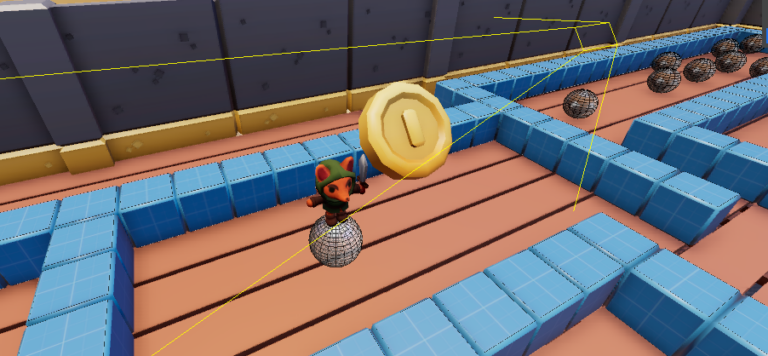
Topic
Continuing from the previous entry in this series, we’re going to keep exploring some of the use-cases of <algorithm>/<numeric> in our day to day work.
Example
It’s all too easy to come up with trivial examples for algorithms that don’t reflect the type of problems we have to solve everyday. With that in mind, this example (though a little contrived) might be something we actually want to calculate in O3DE.
Suppose we have a collection of axis aligned bounding boxes (AABBs) and we’d like to find the union of all of them. We might need this to find the total extents of our scene or perhaps the area taken up by a players base. Here’s the normal imperative version to start:
AZStd::vector<AZ::Aabb> aabbs { /* a bunch of Aabbs */ };
AZ::Aabb aabbMinMax = AZ::Aabb::CreateNull();
for (const AZ::Aabb& aabb : aabbs)
{
aabbMinMax.SetMin(aabbMinMax.GetMin().GetMin(aabb.GetMin()));
aabbMinMax.SetMax(aabbMinMax.GetMax().GetMax(aabb.GetMax()));
}
My initial intuition was to try and use minmax_element or some combination of min and max from <algorithm>, but that proved to be non-starter. Those algorithms are implemented in terms of the < operator which doesn’t fit particularly well with Vector3 and the overload still requires a binary comparison function. Back to the drawing board…
My initial intuition was to try and use minmax_element or some combination of min and max from <algorithm>, but that proved to be non-starter. Those algorithms are implemented in terms of the < operator which doesn’t fit particularly well with Vector3 and the overload still requires a binary comparison function. Back to the drawing board…
Thinking about the problem again, we’re essentially going from many to one, and there’s an algorithm that’s perfect for that – accumulate. accumulate turns out to be incredibly versatile. In this example we provide the range to operate on, the initial value and a reduction function. The lambda/function for the reduction is the interesting part. The first parameter is the accumulator value (acc by convention), the second parameter is the current element in the range we’re operating on, and the return value is the next accumulator.
AZStd::vector<AZ::Aabb> aabbs { /* a bunch of Aabbs */ };
const auto aabbMinMax = AZStd::accumulate(
aabbs.cbegin(), aabbs.cend(), AZ::Aabb::CreateNull(),
[](AZ::Aabb acc, const AZ::Aabb& aabb)
{
return AZ::Aabb{
acc.GetMin().GetMin(aabb.GetMin()),
acc.GetMax().GetMax(aabb.GetMax())};
});
Deliberation
Applications of accumulate and transform (look out for this in an upcoming article) crop up all over the place and making use of them can help simplify and improve our code. (Note: accumulate is very closely related to reduce – they are largely the same but do have some differences when it comes to ordering and execution policies. This isn’t important for understanding what they actually do).
Applications of accumulate and transform (look out for this in an upcoming article) crop up all over the place and making use of them can help simplify and improve our code. (Note: accumulate is very closely related to reduce – they are largely the same but do have some differences when it comes to ordering and execution policies. This isn’t important for understanding what they actually do).
Further Reading
If you’re getting more interested in algorithms the next must-watch talk is:
Algorithm Intuition by Conor Hoekstra
The talk does a fantastic job of introducing a whole host of algorithms and how to think about them.
To be continued…
Next time we’ll look at another algorithm staple – transform.
Disclaimer: The views expressed here are those of the individual author and do not represent those of the Open 3D Foundation, Open 3D Engine or individual’s respective company.




